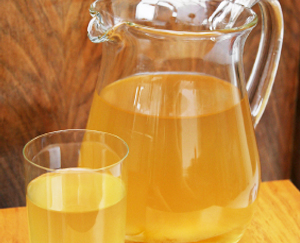Gluten Free
What does following a gluten-free diet mean? That you're embarking on an easy diet with a wide range of health-promoting effects. Instead of dwelling on what you’re giving up, consider that you’re going to enjoy a whole new world of delicious food options to meet your special dietary needs. You’ll be eating seasonally, choosing more fresh fruits and vegetables, focusing on meats, seafood, poultry, legumes, lentils, corn, and rice, and discovering fascinating ancient grains such as quinoa, amaranth, and millet. You’ll be able to eat potatoes, eggs, most cheeses, even chocolate (!)—and enjoy them without guilt because you’ll be taking good care of your body. In fact, you’ll probably end up eating—and feeling—better than ever!
Visit this page for more information about living Gluten Free
---
We carry a large variety of gluten free items, the brands listed below represent just some of the offerings we carry















More Diets

Related Topics
-
Give Chai a Try
-
Bottled Water: What's the Difference?
-
For Better Health, Take Your Tea with a Twist
-
Meet Mangosteen—the Antioxidant Powerhouse
-
Take Care of Your Sweetheart’s Heart
- By Sara Lovelady
Kick the Soda Habit with Kombucha
Lots of people love the sweet carbonated taste of soda. According to the Beverage Marketing Group, the average American drinks 19 ounces of the stuff every day. Unfortunately, sodas—both mainstream and natural varieties—are packed with sugar and calories that can contribute to weight gain. The good news is that if you’re trying to kick the soda habit, you don’t have to give up the zest of carbonation or the sweetness of sugar. Instead, try kombucha.
If you’re a sweet-and-sour fan, kombucha may be your new favorite drink
Keep the carbonation
Kombucha is a naturally fermented tea that you can buy in ready-to-drink bottles. Through the fermentation process, some of the carbohydrates contained within the tea are converted into carbon dioxide. So kombucha delivers the same carbonated blast that soda does.
It tastes tart (from the fermentation) and sweet (from the addition of fruit juice or sugar). If you’re a sweet-and-sour fan, kombucha may be your new favorite drink.
Ditch the sugar
Kombucha contains only a fraction of the sugar and calories of soda. How much depends on whether you choose fruit juice–sweetened kombucha, which falls on the low end of the scale, or sugar-sweetened, which falls on the high end. But either way, kombucha’s got soda beat. Just look at the numbers:
- 20 ounces of pop packs 68 grams of sugar (16 teaspoons!) and 272 calories
- 20 ounces of sugar-sweetened kombucha contains 33 grams of sugar (8 teaspoons) and 132 calories
- 20 ounces of fruit juice–sweetened kombucha has just 8 grams of sugar (2 teaspoons) and 32 calories
Switch out your daily 20-ounce soda for 20 ounces of low-sugar kombucha and that might add up to losing a whopping 20 pounds over the course of a year!
Does it have other health benefits?
Not only can kombucha help you cut calories, but it may have health benefits. Because its fermentation is caused by bacteria and yeast, kombucha is considered probiotic. (Look for unpasteurized or “raw” kombucha; heat destroys probiotics.) Studies have shown that probiotics such as acidophilus found in yogurt help aid digestion. Kombucha manufacturers and advocates claim similar digestive and other health benefits, though these have not yet been shown in research.
Be kombucha-smart
Susan Beck, Ph.D., L. Ac., CNS, a certified nutrition specialist with a focus on oncology, has only two cautions about drinking kombucha. First, don’t make your own; there have been several incidences of food poisoning linked to home-brewed kombucha. Second, don’t believe manufacturers’ claims that kombucha can cure cancer. “I have never seen any research that substantiates any of the cancer claims made for kombucha,” says Beck.











